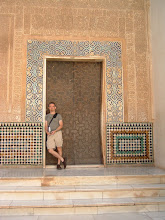An unusual lawsuit has been filed in Quebec, Canada alleging that two Canadian construction companies violated international law when constructing buildings for Israeli settlers in the West Bank.
The Palestinian village of Bil'in is seeking an injunction to stop further construction, and demolish apartment buildings already erected in Moddin Illit, a Jewish settlement northwest of Ramallah, and $2 million CAD in punitive damages.
The village of Bil'in was seized by Israeli forces from Jordan during the Six-Day War of 1967.
Israeli settlers have constructed 30 buildings with 250 apartments and condominiums in the village.
The villagers claim that these actions violate the Fourth Geneva Convention; Canada's Crimes Against Humanity and War Crimes Act; the Quebec Charter of Human Rights and Freedoms; and the Civil Code of Quebec.
Are the villagers right; do these actions violate international law? Even if they do, do the villagers have a right of action in Canada?
EIL will look at this issue starting with the Fourth Geneva Convention.
What is the controlling international law?
The plaintiffs in the lawsuit allege that the actions of the Canadian companies - Green Park International and Green Mount International - violated the Fourth Geneva Convention; Canada's Crimes Against Humanity and War Crimes Act; the Quebec Charter of Human Rights and Freedoms; and the Civil Code of Quebec.
Each of these conventions create or utilize international law in defending the rights of civilians in conflict zones.
The Fourth Geneva Convention - formally known as the Geneva Convention relative to the Protection of Civilian Persons in Time of War - establishes assumed responsibilities and rules followed by States during armed conflicts.
Article 2 states that these rules apply to States partially or totally occupying territory of another member to the convention. These rules apply even if one of the participants in the armed conflict is not a member to the convention.
Jordan and Israel are both signors of the Fourth Geneva Conventions.
The territory in question is still considered occupied territory.
The borders between Israel and Jordan were fixed in an armistice agreement signed between the two countries in 1949. This border is known as the "Green Line." When Israel militarily annexed Jordanian territory past the Green Line in 1967 - including the village of Bil'in - this area became an occupied territory under customary international law. A legal status that has not changed to this day.
So, since both Jordan and Israel are members to the Fourth Convention, they are bound by the responsibilities laid out in the convention. These responsibilities apply to the area surrounding Bil'in, even after all this time. The whole area is considered an occupied territory under international law.
(There is a time limit of one year after the close of general military operations that applies to certain articles of the Fourth Convention, any provision that is past this time limit is excluded in this analysis.)
What responsibilities does the Fourth Convention mandate in this situation?
Article 49 forbids the mass forcible transfers - such as removing people from their village. There is an exception for military necessity. The same article forbids resettling your own people in seized territory. Allowing Jewish settlers to take over the village of Bil'in appears to violate this article.
Article 53 forbids the seizure of real or personal property from individuals, unless militarily necessary.
Lastly, why sue in Canada?
The Canadian Charter of Rights and Freedoms specifically incorporates international law into its legal system in Section 12(g).
This means that the villagers of Bil'in can argue certain points under international law that might be excluded in other forums.
Practically, the Canadian court has personal jurisdiction over the construction companies. So if the villagers get a favorable ruling, a Canadian court could actually stop the construction through use of penalties.
What does this mean to you?
There are many issues to be resolved in this case. Can a Canadian court hear a Fourth Convention case that involves two other states? Should a private actor be held complicit under the Fourth Convention?
But I think these are detail oriented points and miss the big picture.
Private actors are using international law against other private actors to settle humanitarian disputes.
This is not two states arguing over mineral rights. These are two groups of private individuals settling a dispute and using international law for their arguments.
The impact of this type of usage may be felt everyday.
The only comparable type of case I have see are Alien Tort Claim Act (ACTA) cases in the U.S. and they rely on domestic law. Plus, ACTA cases have been limited to the Law of Nations as it existed in 1776. (This is an incredibly limiting standard that has made cases of torture impossible to prosecute.)
Businesses may now have to consider whether their actions violate international humanitarian law. If it does, they may be subject to lawsuits.
At least in Canada.
--
www.joshualenon.com





0 Comments:
Post a Comment